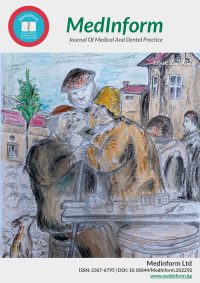Issue Two 2022
2022, Vol. 9, issue 2, (September)
Literature Review
Modulation of host response – use in periodontal diseases
Abstract:
The basis of the macroorganism’s reaction is the inflammatory response to the presence of plaque biofilm,
modified by genetic factors (which explains why the rapidly progressive forms of periodontitis have a tendency for
family aggregation), as well as systemic environmental factors (smoking, diabetes, stress).
Periodontal diseases are multifactorial, complex diseases driven by the immune–inflammatory response to
bacterial plaque in susceptible patients. The importance of the body’s response as a determinant in susceptible
patients has led researchers to identify the genetic frequency that characterizes individuals as resistant or
susceptible to the disease. Researchers are also investigating host response modulating therapies (HMTs) aimed
at modifying or reducing the destructive aspects of the immune response so that the immune–inflammatory
response to bacterial plaque is less damaging to the periodontal tissues. As the pharmaceutical industry develops,
HMTs as an adjunctive therapy in periodontal disease will target different aspects of the body’s response.
Keywords: periodontal diseases, host response modulation therapy, immune–inflammatory response

